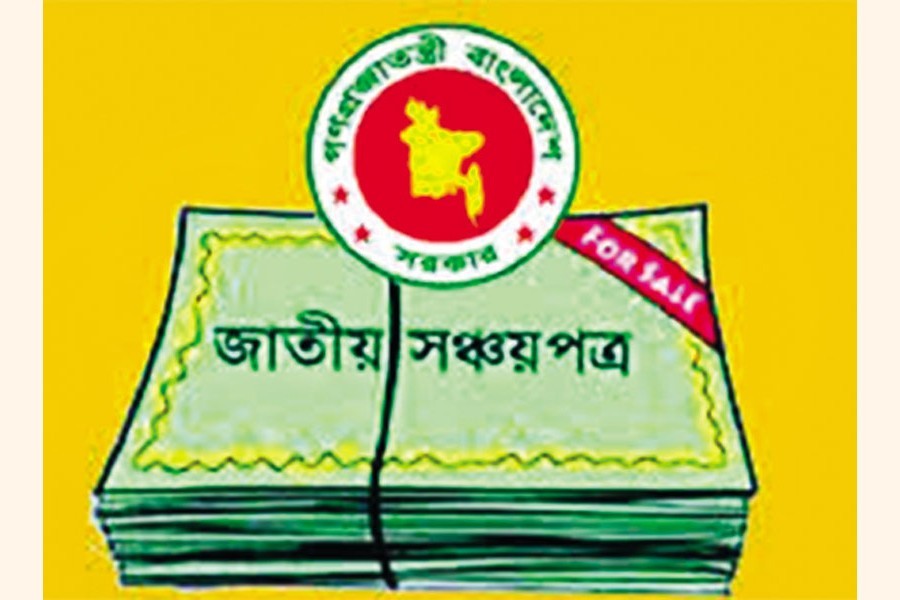Deep cuts in yield rates send net sales of national savings certificates (NSCs) into negative territory in December, raising prospect for banks to wallow in deposit.
The net negative sales of NSCs -- designed as government borrowing tools -- amounted to around Tk 4.36 billion in December 2021 against Tk 7.01- billion surplus in the previous month, according to the Department of National Savings (DNS) latest statistics.
Earlier, the net negative sales of NSCs were worth Tk 6.22 billion in April 2020 just after the imposition of restrictions on movement to contain the spread of coronavirus transmission in Bangladesh.
The official figures also show that the net sales of NSCs dropped by more than 53 per cent to Tk 95.90 billion during the first six months of the current fiscal year (FY), 2021-22, from Tk 204.87 billion in the same period of the previous fiscal year.
The officials, however, attribute such rock-bottom sales to reduction in yields on savings instruments recently by the government.
Up to 2.0 per cent of yields were slashed on almost all savings schemes on September 21, in the face of dissatisfaction of the buyers who have little or no alternative choice.
The significant fall in the sales of savings instruments is expected to enhance government's bank borrowings in the coming months to meet budget deficit in part, they explained.
The government had already fixed the borrowing target from savings tools at Tk 320 billion for FY'22.
"The government borrowing from the banking system may increase in the near future to meet its budget deficit," a senior government official told the FE Monday.
Talking to the FE, a senior executive of a leading private commercial bank said the net sales of the NSCs dropped significantly in the recent months following lower yield on the NSCs alongside different types of restrictions imposed by the government.
"Deposit in the country's banking system may be enhanced in the coming months if the falling trend in net sales of the NSCs continues," the private banker predicts.
He also says the government's interest expenditure is likely to fall in FY'22 if the existing falling trend in high-cost borrowing from the NSCs persists.


